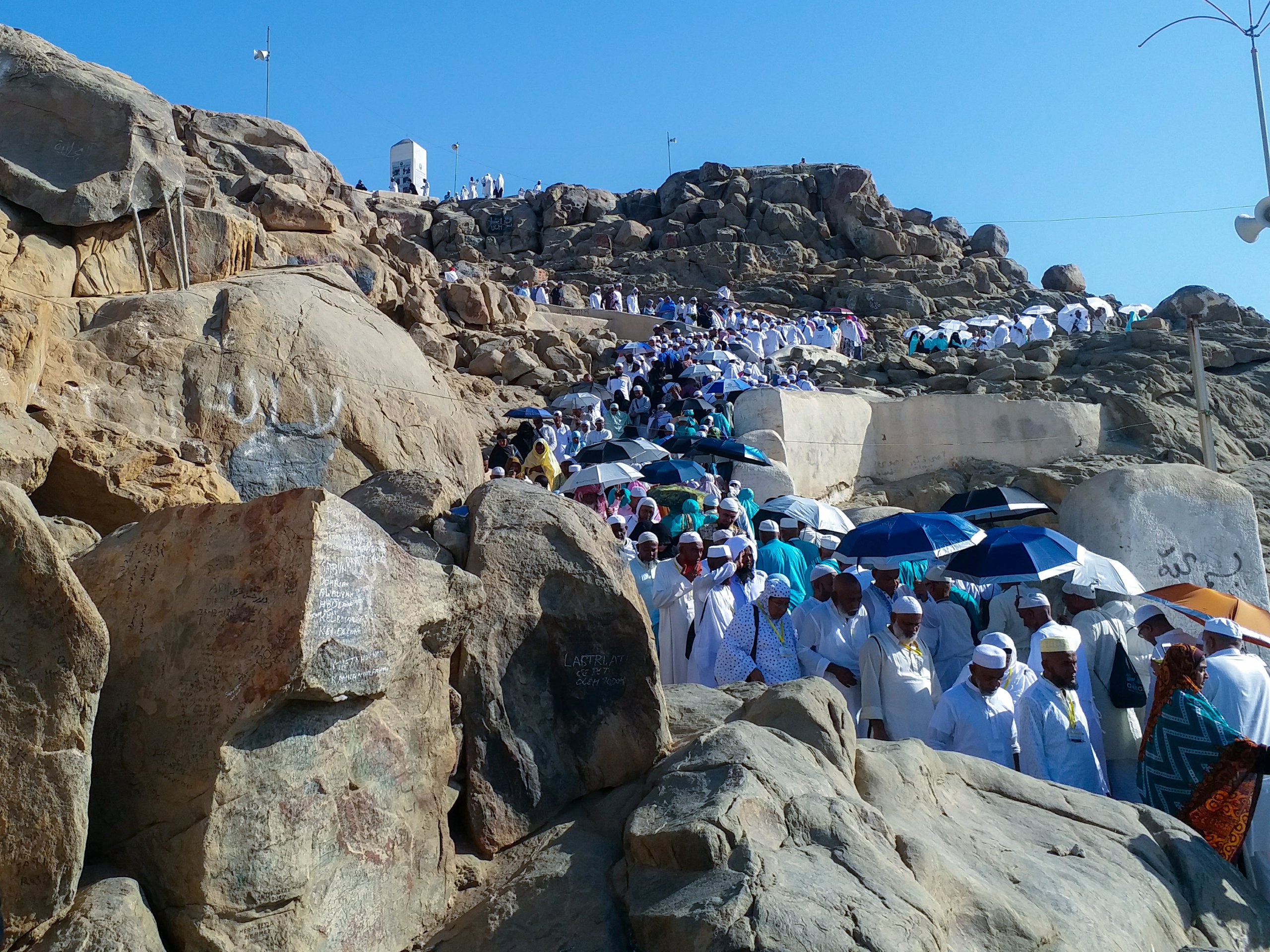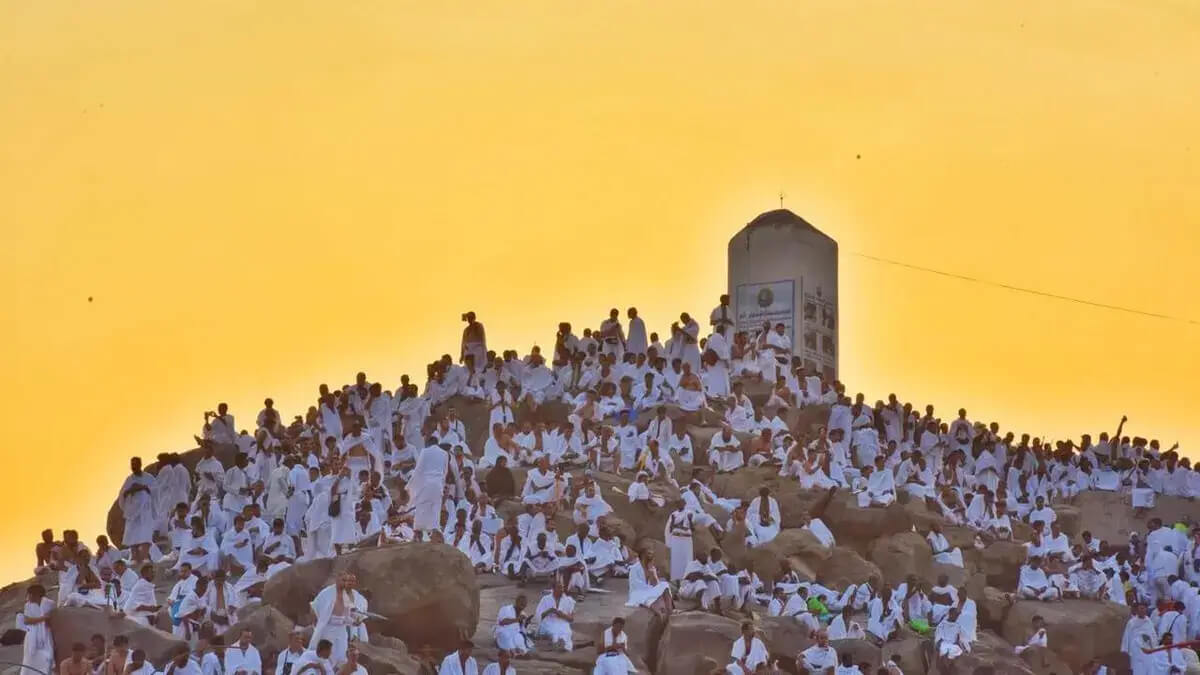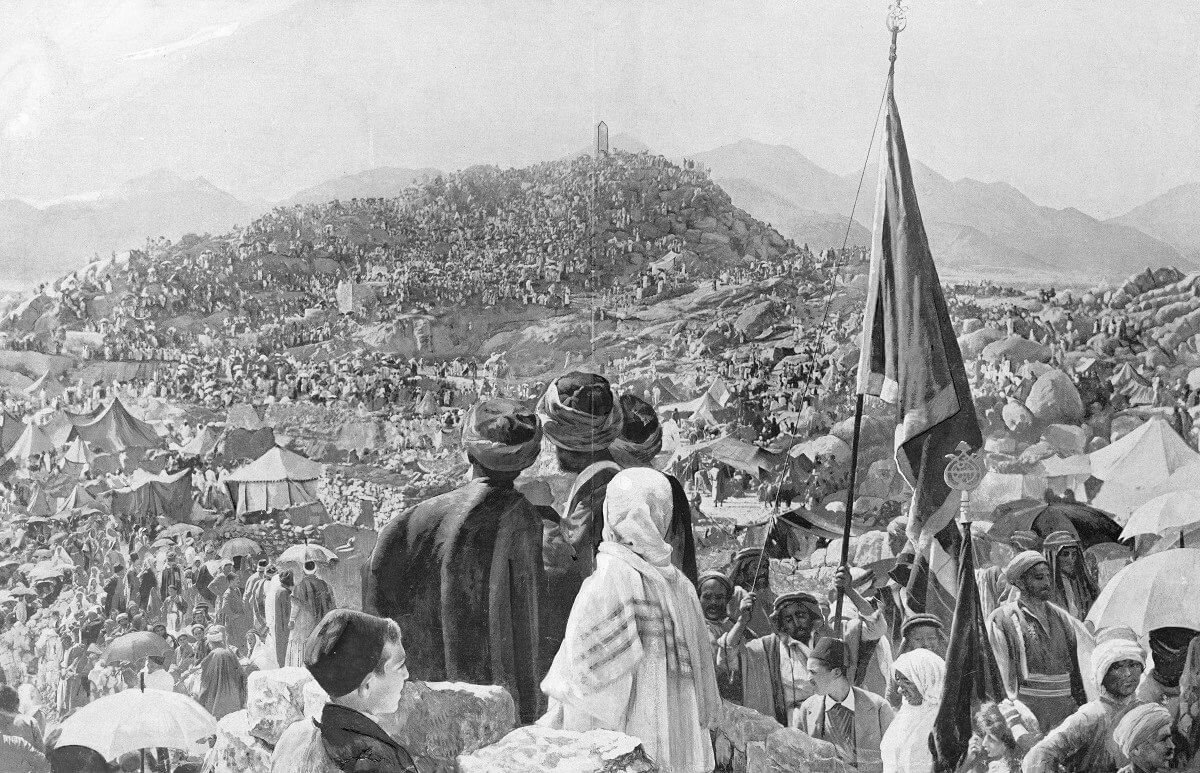Importance of the Day of Arafah

What is the day of Arafah?
The Day of ‘Arafah is the Hajj in itself. So said the Prophet, God’s blessings and peace upon him:
“Al-Hajj ‘Arafah,” meaning “‘Arafah is the Hajj” (Ahmad).
On the Day of ‘Arafah, from somewhat before noon until sunset, Pilgrims, observing the rules and symbolic dress of ritual pilgrim sanctity (iḥrâm), gather to the Plain of ‘Arafât and take their stand (wuqûf) of faith before God, entreating His mercy and forgiveness. From this rite, ‘Arafah takes its other popular name, Yawm Al-Waqf (the Day of Standing).
When is the day of Arafah?
 Arafah is the ninth day of Dhu’l-Ḥijjah, the 12th and final month in the Islamic calendar. It occurs on the second day of the Hajj pilgrimage to Makkah.
Arafah is the ninth day of Dhu’l-Ḥijjah, the 12th and final month in the Islamic calendar. It occurs on the second day of the Hajj pilgrimage to Makkah.
What should Muslims who are NOT at Hajj do?

While Pilgrims do not fast on the Day of Arafah, Muslims who are not making Hajj are strongly urged (in Islamic Law, fiqh, it is codified as mustaḥabb, highly desirable) to fast this day. The Prophet, God’s blessings and peace upon him, said of this act of worship, that is, fasting the Day of ‘Arafah for those not present at Hajj: “It atones for the sins of the preceding and coming year” (Muslim).
The Day of Arafah — for the Pilgrims and all the believers — is the best day for worship and supplication in the entire year because the Prophet, God’s blessings and peace upon him, said of it:
“On no day does Allah emancipate people from the Fire [of Hell in the Hereafter] as He does on Arafah. Near does He draw to them [the Pilgrims upon Arafah]. Then does He exalt [them] before His angels, saying:‘And what do they seek?’ ” (Tirmidhi)



